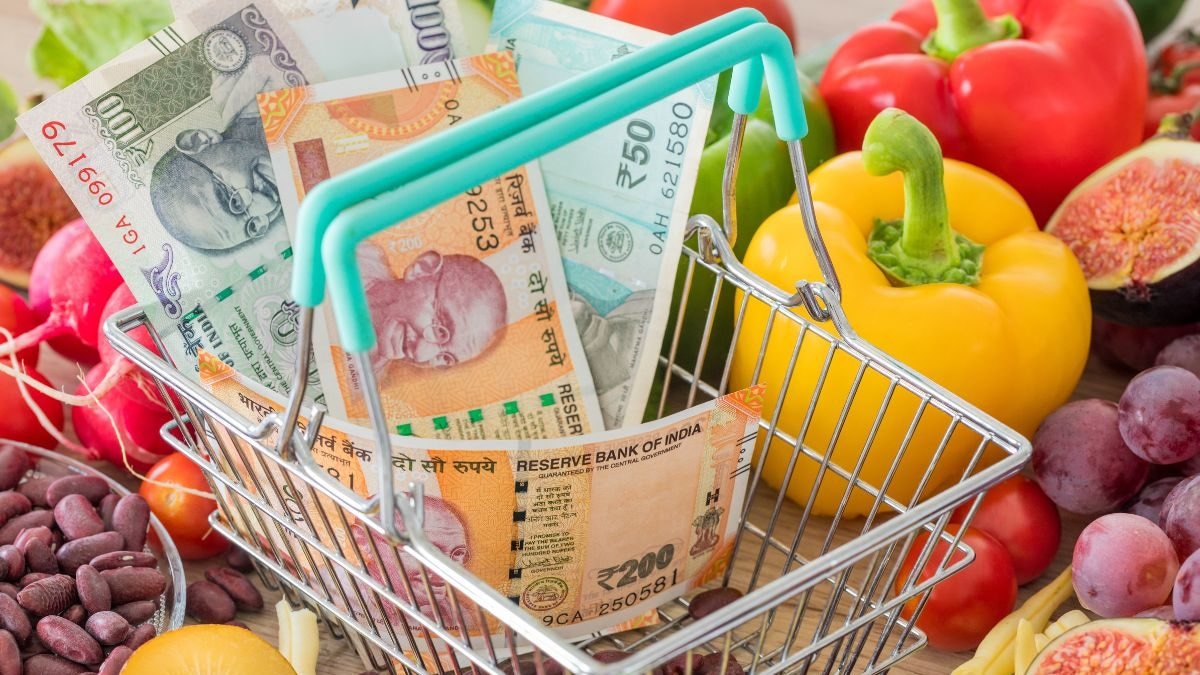The food and beverages inflation is expected to remain above the 7 per cent mark in April 2024.
CPI inflation in March 2024: Experts say stiffer cereals inflation, stubbornness in vegetable inflation and elevated pulses inflation remain a concern
Even as the retail inflation or CPI inflation declined to a five-month low of 4.85 per cent in March 2024, experts said the worry remains food inflation, which remains high at 8.5 per cent. They said stiffer cereals inflation, stubbornness in vegetable inflation and elevated pulses inflation remain a concern given the India Meteorological Department’s (IMD) prediction of more-than-normal heatwaves between April and June.
Though inflation in the food basket fell from 8.66 per cent in February to 8.52 per cent in March, it is still a concern.
However, Nidhi Khare, secretary of Department of Consumer Affairs, during a series of interactions with representatives of pulses industry in the run up to operationalisation of online stock monitoring from 15th April, 2024 emphasised that anyone found to be indulging in forward trade of pulses would be dealt with firmly as per various provisions of Essential Commodities Act, according to an official release on Saturday.
She also discussed with Indian Mission in Yangon on issues relating to pulses imports from Myanmar such as import prices in the wake of revised exchange rates and stocks held by importers in Myanmar.
The importers and other industry players like millers, stockists, retailers etc have been asked to honestly declare their stock of pulses, including imported Yellow Peas, on a weekly basis.
On food inflation, Dharmakirti Joshi, chief economist at CRISIL, said, “Softer core and a sharp fall in fuel offset the stubbornness in food inflation. The worry though remains food inflation which remains high at 8.5 per cent. Stiffer cereals inflation, stubbornness in vegetable inflation and elevated pulses inflation remain a concern given the India Meteorological Department’s prediction of more-than-normal heatwaves between April and June.”
However, the IMD also predicts a normal southwest monsoon, which bodes well for the upcoming kharif crop and can ease food inflation next fiscal, he added.
“In our base case, we expect CPI inflation to ease to 4.5% this fiscal, from 5.4% in the last. The risks to food inflation appear to be somewhat tilted upwards due to weather-related uncertainties,” Crisil’s chief economist said.
Core inflation fell to a record low of 3.3 per cent while fuel deflated 3.2 per cent on the back of lower domestic fuel prices. “The recent rise in global crude oil and other input prices is now monitorable,” Joshi said.
Aditi Nayar, chief economist and head (research and outreach) at ICRA, said, “The CPI inflation moderated to 4.85 per cent in March 2024, but exceeded our forecast of 4.7 per cent, with food inflation softening only marginally as compared to the previous month and core inflation steady at 3.5 per cent.”
She added that ICRA estimates the food and beverages inflation to remain above the 7 per cent mark in April 2024. “An intensification of the impending heatwave may worsen the seasonal uptick in prices of perishables, heightening the criticality of a favourable monsoon in 2024 to keep food inflation in check and inflationary expectations well-anchored,” Nayar said.
On rate cuts, the ICRA chief economist said monetary easing is likely to be quite back-ended in 2024, pending clarity on various factors such as the turnout of the monsoon, evolution of crude oil prices as well as rate action from the US Fed. “At best, we foresee 50 bps of rate cuts from the MPC, in H2 FY2025.”







